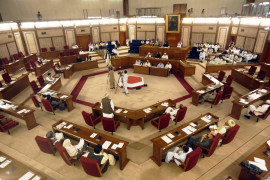
The discussion titled ‘The State of National Integration in Pakistan: The Case of Balochistan’ was organised by the History Department of the Quaid-i-Azam University in collaboration with the Hanns Seidel Foundation.
A number of politicians, academicians, representatives of civil society and students attended the discussion.
The speakers said the recent unrest in Balochistan was unlike other bouts of turbulence in the province, since it was a manifestation of the resentment of educated youth against the system.
The discussion highlighted that instead of bringing forth the true representatives, the establishment has always relied on ‘sardars’ to represent the people of Balochistan, a trend prevalent since the time of colonial rule.
Former provincial education minister Dr Fazila Aliani, who chaired the session, said that the establishment was stifling economic growth and compromising democratic principles in the province. “There is a war going on in Balochistan and the rulers have no courage to say what is happening,” she maintained. In her opinion the NFC award and the 18th amendment will offer little relief to the Baloch people because their problems were too deeply rooted.
Dr Ishaq Baloch of the Balochistan National Party (BNP) said that the history of the Baloch nation is spread over centuries and it has always been an autonomous state, never being a part of united India.
He recalled that there used to be a ‘tribal democracy’ in Balochistan before the British entered the region. The tribal people used to elect their ‘Mirs’ through votes for a specific time period. The British introduced the present sardari system in the mid-19th century for their own benefit, he said.
The speakers pointed out that subsequent rulers and establishment has been using religion as a tool for their vested interests, which has hurt the cause of democracy. They pointed out that the Quaid-e-Azam had supported provincial autonomy, but it has never been granted in its truest sense.
Published in The Express Tribune, November 28th, 2010.

















COMMENTS (2)
Comments are moderated and generally will be posted if they are on-topic and not abusive.
For more information, please see our Comments FAQ